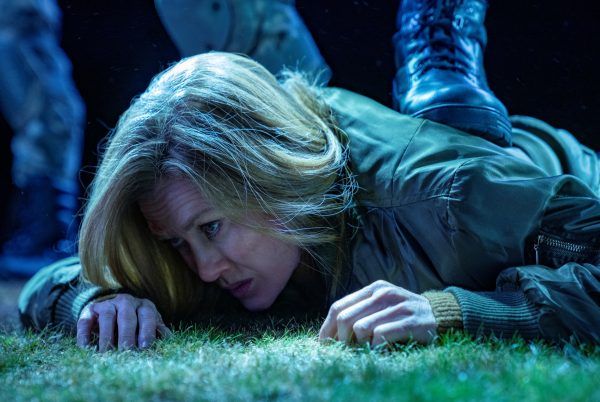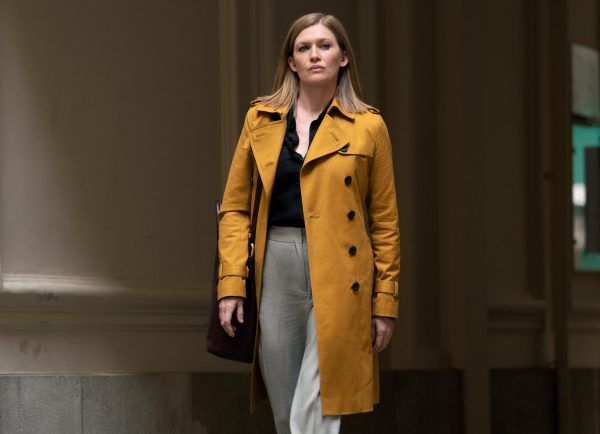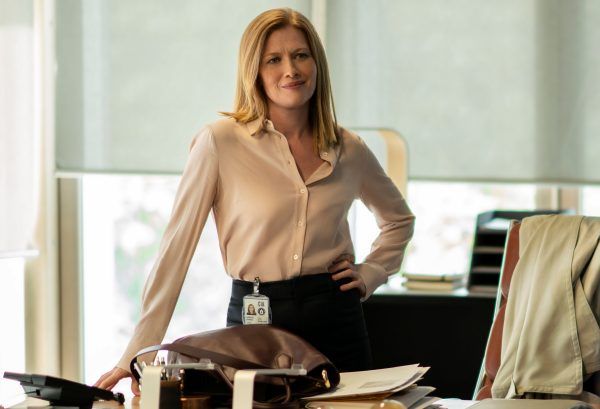From show creator David Farr (who also wrote the screenplay for the film), the second season of the Amazon Prime Video original series Hanna continues to follow a young woman (Esmé Creed-Miles) who escaped a sinister government agency, only to find out that she was not the only one out there with the skills and training to be an assassin. With the Utrax program and all of the new trainees now being run by the ruthless John Carmichael (Dermot Mulroney), Hanna finds an unlikely ally in CIA agent Marissa Wiegler (Mireille Enos).
During this 1-on-1 phone interview with Collider, actress Mireille Enos talked about having been given a two-season character arc before signing on for Hanna, how Season 2 evolved, what she enjoys about playing Marissa, the Marissa-Hanna dynamic, what Dermot Mulroney and his character bring to Season 2, and what it was like to have show creator David Farr direct a couple of episodes this season.
[Editor's note: The following contains some spoilers for Hanna Season 2.]
Collider: I was glad to see that Hanna got a second season, because it felt like there was still a lot of story to tell.
MIREILLE ENOS: Oh, good. I’m so glad you felt that way. I did, too. I’m so glad we got to do another season, and I sure hope we get to do a third, because it still feels unresolved.
What’s it like, as an actor, to play a character where it still feels like there are questions that you’re still curious about?
ENOS: That’s what it keeps it exciting, when you still are curious about your own journey and the writer still has tricks in his pockets. You just hope that you get the opportunity to tell that story. It happened with The Killing, as well. We got canceled at the end of Season 3, and I thought, “Oh, no, is Sarah going to be left in those woods, for the rest of eternity?” Luckily, we got six more episodes to finish it up.
With a series like this, obviously you don’t get to know the full story arc ahead of time because things evolve. But when you move into a second season and you know the character better, does that help you — even if you don’t always know what’s coming next?
ENOS: Yes, absolutely. And with Hanna, I was really lucky because, before I took the role, David Farr and I sat down and he actually told me a rough character arc for Marissa for two full seasons. So, during Season 1, I already knew where it was going and I was able to just keep that in mind, as we were building it.
By the time you shot it, did the second season stay close to what you were told?
ENOS: For me, it was very, very close. He hadn’t talked to me about how large the world of Utrax got. I have a feeling that evolution happened later, as he sat down to write. He had created this world of the girls, at the end of Season 1, but I don’t know that he fully knew where that was going. And then, there were those amazing girls and their stories to tell, and he ended up building a huge part of Season 2 around them.
What have you most enjoyed about playing this character, from day one, and are there things about, or you’ve grown to appreciate, as she’s evolved?
ENOS: I am always curious about people that have a really rich inner life, and Marissa has such deep privacy. In Season 1, we got to see the juxtaposition of that very private, deadly capability, next to her private life, where she was trying to have a sense of normalcy, and a lover, and a home. Those two aspects of her, and how she moves back and forth between them, is very interesting to me. In Season 2, obviously that private life has been stripped away from her, but that impulse motivates her to try to protect Hanna.
She is so private that she actually mentions to a co-worker that she’d like to keep her private life private.
ENOS: Yeah, she’s somebody who doesn’t want to be known. And then, when you put two characters together, like Marissa and Hanna, who are both so private, and so deeply guarded and untrusting, and you ask them to build a relationship, it’s very interesting and complicated.
It seems like those two characters could sit in a room together and not speak for an entire day.
ENOS: They’d be very happy to sit in silence.
Marissa is a woman who seems to resent having somewhat maternal instincts.
ENOS: Yeah, it’s very complicated and strange for her. I don’t even know if she would go so far as to say maternal. I don’t know if she even has that in her vocabulary. She just reached the end of her ability to stomach waste. She had to save someone in her life. [Being maternal] makes her shudder, but something about Hanna leads her to make a different choice than she usually makes some, which is an unselfish choice, for once.
Do you think she really does care about Hanna, at all?
ENOS: I think there is some caring there. I think what happened, in the past and with the rest of those children and the horror of that, that Hanna is the one remaining person and the one possibility of redemption. And Hanna doesn’t have a friend in the world. I believe there’s something about that, that Marissa recognizes, and she does have actual feelings for her, of caring.
She cares about Hanna, but she’s also willing to sacrifice Clara for Hanna. Is there a situation where she would sacrifice Hanna?
ENOS: I think she has crossed that line. There were so many points, in Season 2, where if she was going to give up on Hanna, she could have. They get into that physical fight and Hanna basically leaves her for dead, in the back of the truck, but she keeps going. She runs herself into a tree for her. She gets caught and put in isolation, and she breaks out. She gets caught again, and she gets thrown in a hole. She gets beaten up, and she just keeps going. So, I think any moment that she might’ve backed out, we’re beyond that.
What do you most enjoy about that uneasy relationship and how these are two people who can never really fully trust each other, but who need each other, in some way?
ENOS: Well, my hope for Season 3 is that we get to know a little more about Marissa’s backstory. I think it would be very illuminating, as to how she has evolved into the person she is and what it is about Hanna that resonates for her, with her own past.
Part of the fun of Season 1 was getting to see you and Joel Kinnaman reunited. How did Dermot Mulroney compare, this season? What sort of energy did he bring to things?
ENOS: Dermot is such a wonderful actor, and we had such a great time working together. He has a very, very different energy from anyone else in the show. The show has been so European, and Joel is originally Swedish and was playing a German man, so he was still European. We haven’t had a really American actor, and somebody who felt of this place, and Dermot stepped into that. Carmichael was supposed to represent that American company man and the CIA agent, who’s a lifer that’s definitely drunk the punch and believes in what he’s doing. Dermot just really embodied that.
What are you enjoying about the dynamic between those two people, who really have good reason to be suspicious of each other, but don’t want to quite let the other one know how suspicious they are?
ENOS: They have a history. They knew each other, a long time ago, so that helps, in that kind of veiled relationship, where it can fall into an old pattern of familiarity, but they’re both keeping huge secrets from one another.
With everything that she knows now, are there things that Marissa would do differently with the program? Are there things she would have changed?
ENOS: Oh, yeah, she wants to burn it to the ground. As opposed to Carmichael, who really believes in what he’s doing, even way back when, I think that was less of the motivation for Marissa than simply proving that there’s nowhere that she didn’t belong and nowhere she couldn’t succeed. In this man’s world, she could accomplish any task set in front of her. I think that is still a huge part of what drives her, but now she has a little more perspective and maturity. At this point, I think she believes the whole program is horrifying.
What was it like to also have David Farr directing episodes? What’s it like when he’s there, in every capacity?
ENOS: It’s awesome. I missed having him on set. A lot of the time, in the American shows that I’ve done, the showrunner is around, every day. That isn’t how Hanna is done. David is the writer/creator, and on set, every day, we have producers that are creating that throughline of story and of style, but David wasn’t there, and I would miss him. There were so many questions that we would have that he simply wasn’t there for. The upside of that is that it gives the directors the power to make those creative decisions, more like on a feature film, which is wonderful. But I love David and I think he’s incredibly talented, so to have him there, in every capacity, was such a pleasure.
A lot of TV shows have a different director for every episode, and this show has a small amount of directors doing more episodes. Does it feel like that gives you some more continuity?
ENOS: Yeah, I love it. In Season 1, it was two episodes per director, which felt like a really nice chunk of time with each. This season, it was even longer, with three episodes, so you really did feel like you were making movies.
Hanna is available to stream at Amazon Prime Video.




